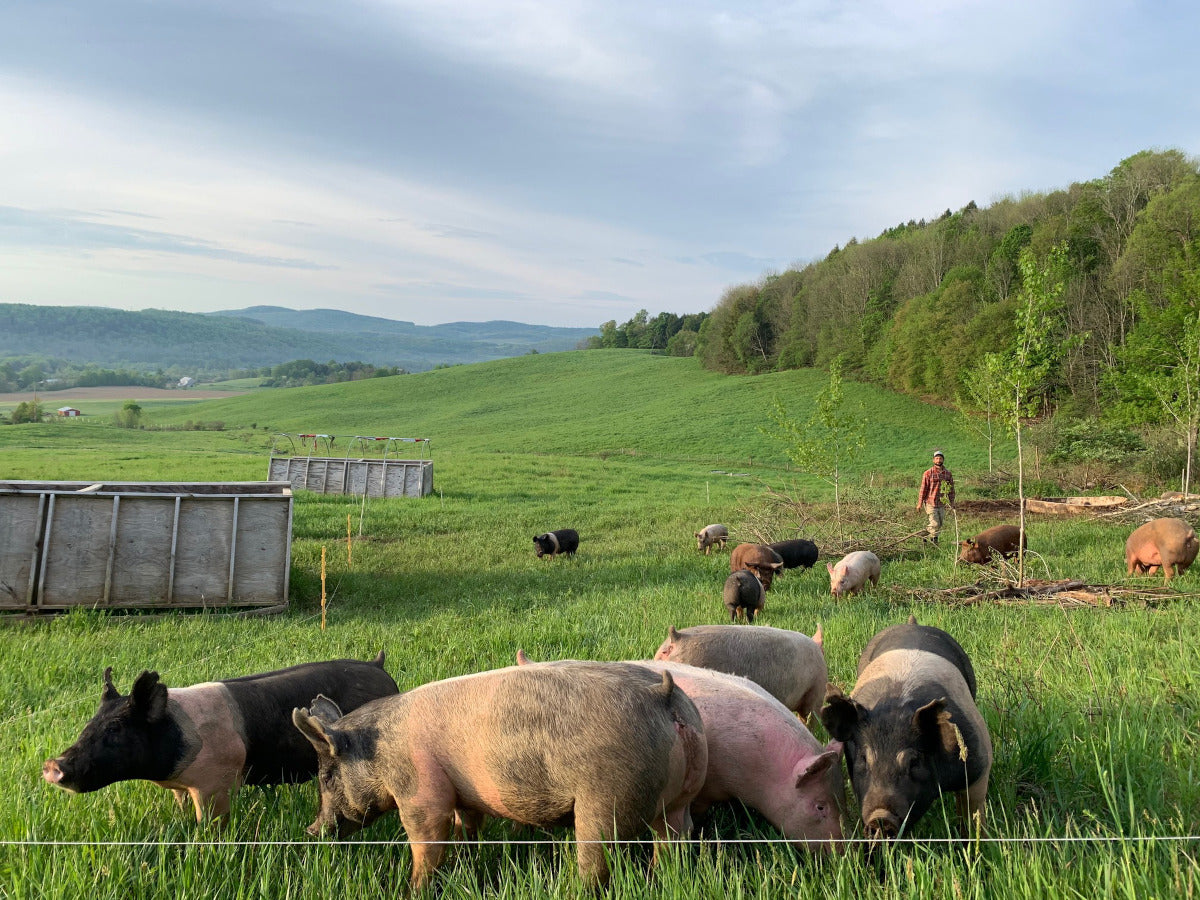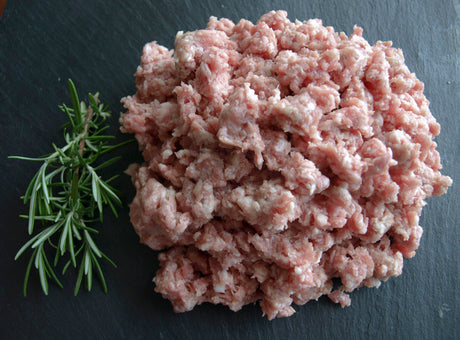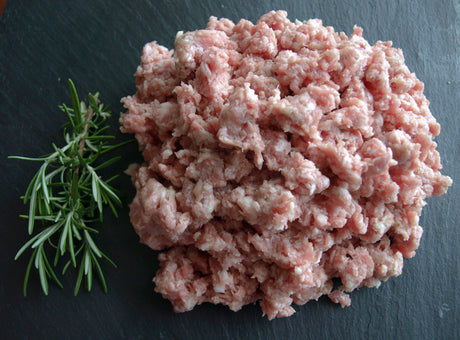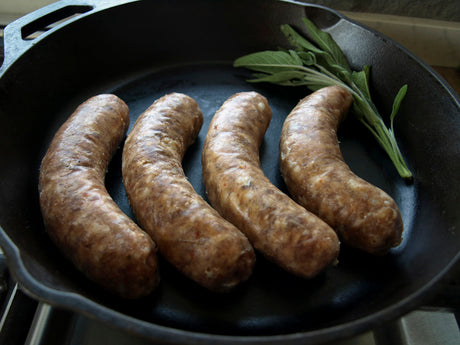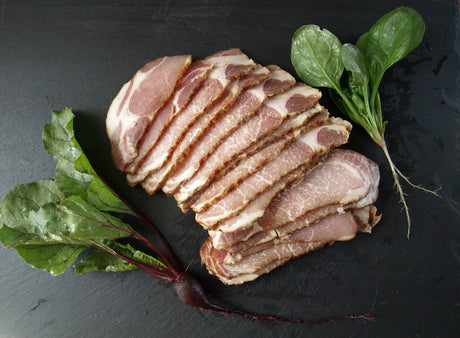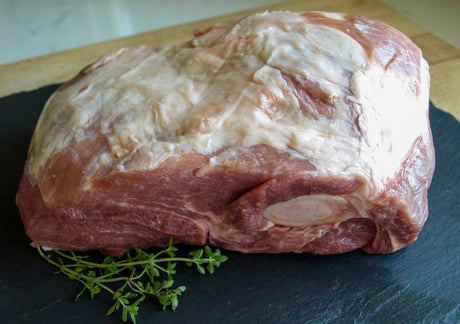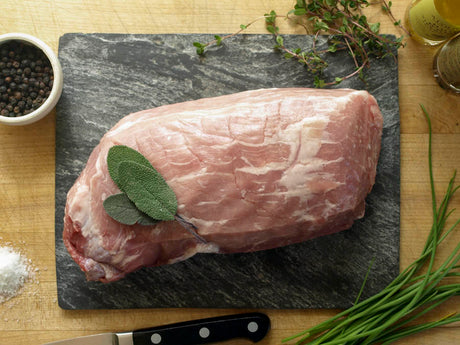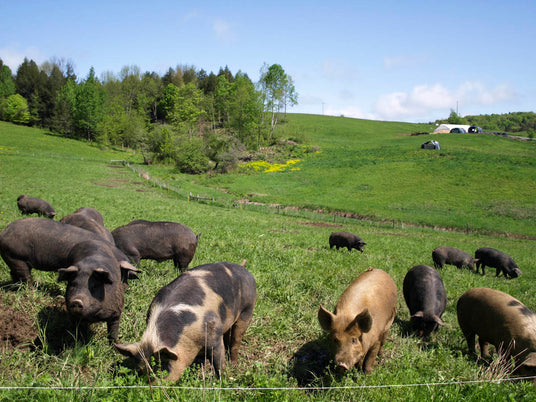
Better Pastured Pork
There’s a world of difference between the pigs on my farm and those in conventional hog factories, where they are crammed into huge barns on slatted floors for their entire lives. In the cold weather my pigs are in a big hoop with plenty of room and a deep pack of wood chips and hay to root and nest in. And in the warm months they are out on the land, grazing and rooting to round out their high quality non-GMO grain I feed, which I get from my friend Andy at nearby Inverness farm.
Raising pigs well takes work, since they’re prone to viewing fences as more suggestion than rule, but it’s worth the effort. The pork from pigs that have been raised in a low stress, natural environment, with plenty of good food and stimulation, is strikingly rich and flavorful. It is worlds better than anything available in a supermarket.
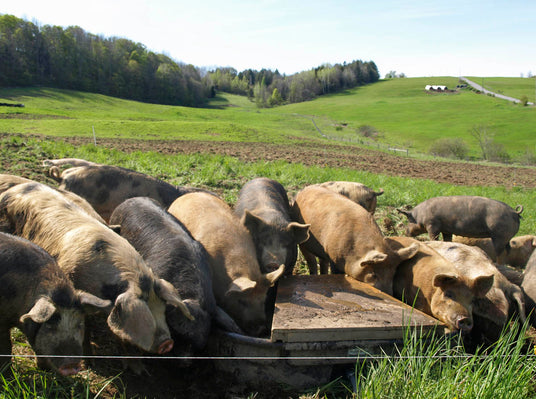
Cleaning Up
One of the best things about pigs is that they can eat good calories that humans aren't interested in, preventing waste. When my local health food store has bread that is about to pass its expiration, rather than throwing it out they send it home with me to feed my pigs. In the fall, dozens of wild apple trees on my farm become heavy with fruit. It's mostly not as pretty as what you'd see in a grocery store standards, but the pigs don't care. One memorable occasion a whole truck load of perfectly ripe mangoes ended up at the farm. Everyone I know and many people I don't filled up the trunks of their cars, but that hardly made a dent, and the pigs ate very well indeed for the next week.

